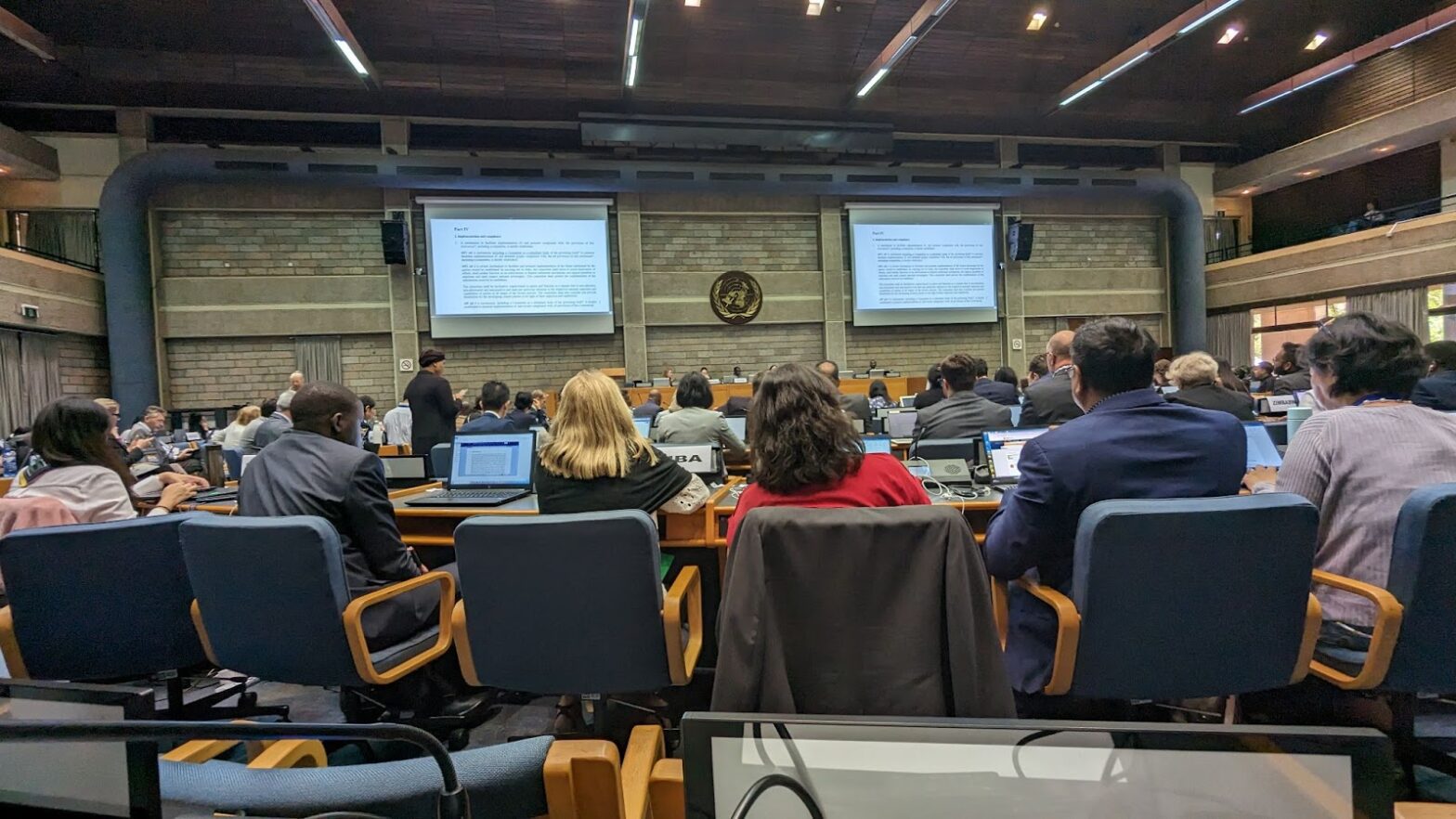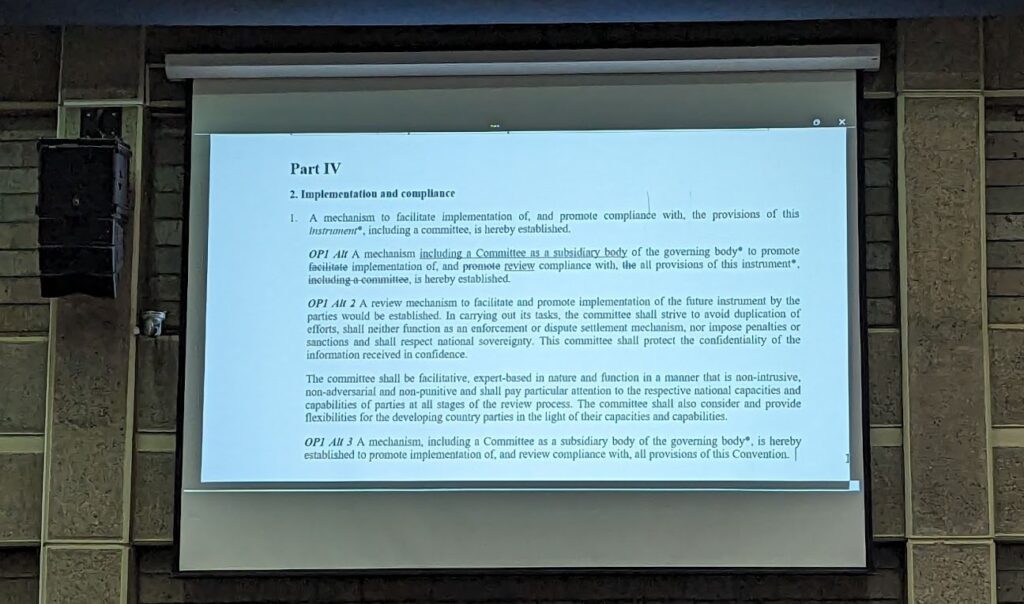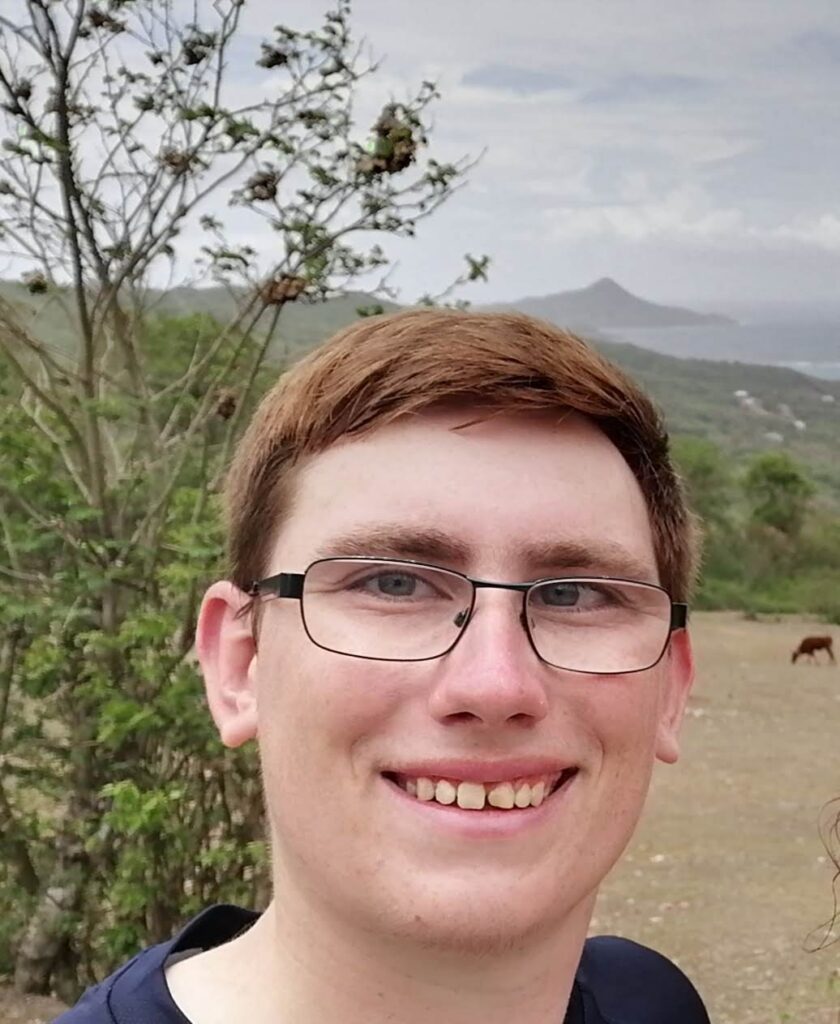When one paragraph became four – Revised Zero Draft text released with significant streamlining needed

Contact Group 2 meeting to discuss the revised Zero Draft. Photo by Sam Winton.
Day 5 of the INC-3 talks in Nairobi to build the first global plastic treaty saw momentum lost to delays and procedural difficulties due to the sheer volume of required revisions to the draft. Sam Winton reports on the hopes and frustrations of the delegates as time begins to run out for the week’s negotiations.
Contact Groups resumed on Friday in a collaborative spirit but with no clear procedure for how to make constructive progress. I have been attending Contact Group 2 where attempts have been made to conduct a second reading of Part IV, Provision 2 of the revised Zero Draft which was released last night along with Part III Provision 1 and Part IV Provision 4. The co-facilitators opened by noting that over 400 proposed text revisions have been submitted to the secretariat. Despite best efforts of the co-facilitators and secretariat to compile these responses into a revised draft, some submissions had been omitted and a short delay occurred while Members who’s submissions were not reflected in the revised draft worked with the secretariat staff to correct this. The updated document with all submissions was projected on the screens.

Initially, the co-facilitators proposed to read through the text, paragraph by paragraph, to investigate areas for potential streamlining of the text and give members a chance to comment on the proposed options. On reading of Paragraph 1, it immediately became clear that there was significant potential for text to be streamlined to eliminate repetitive text as the original single paragraph had now become 4 largely identical options with only one or two words added/omitted. It was also obvious that the scope of the current discussion needed further clarity. Some members took the floor to suggest that Paragraph 1 original, Paragraph 1 Alt 1, and Paragraph 1 Alt 3 should be merged, while other Members took the floor to attempt to negotiate a position on which option should be selected. While discussions continued in a positive and constructive spirit, it became clear that a majority of members felt that the conversation being held was not productive and many members suggested ways in which to improve the efficiency of work. One option with initial support was for a brief readthrough to confirm all members submissions had been included before convening informal meetings to workshop a revised text. One or more informals could be convened in parallel to the contact group session for simple streamlining of the text with no deletion of options. However, this suggestion met opposition from Members with smaller delegations as they would not be able to attend all simultaneous Contact Groups and Informals. Ultimately no agreement was achieved on the formation of informals and conversations continued on their previous term continuing to progress through the Provision 1 paragraph at a time.
By the end of the session, only one Provision had been read, and there was a notable frustration in the room that more constructive conversations were not taking place. As lunch was about to be taken, one Member relayed information form their delegation in another Contact Group that after receiving similar challenges, their approach had been to conduct a rapid readthrough of each provision, only to confirm that all member submissions had been incorporated, and then provide a mandate for the Co-Facilitators and Secretariat to independently conduct the streamlining of text without Members input. This proposed approach received strong support highlighting the clear trust that Members appear to have in the Co-Facilitators and Secretariat. There was an agreement to break for lunch and reconvene in the afternoon to continue reading of the remaining 2 provisions on the newly agreed basis with the Co-Facilitators and Secretariat conducting the streamlining exercise in the evening and overnight. After lunch I used the opportunity of being in Nairobi to meet with long term colleagues based at UNEP and newly met contacts who are also tracking the treaty process. Therefore I was unable to attend the afternoon session but I understand from other delegates that the Contact Groups continued to meet on the agreed terms.
Momentum stalls
On reflection, with the significant volume of proposals for revised text, and only half a day for the secretariat to compile them, it was probably over ambitious to expect to have a detailed second reading of the revised zero draft today. There is a clear need for the text to be streamlined to improve readability before further detailed reading can take place, and multiple members felt that they had not had sufficient time to review the revised text to adopt a negotiating position. This ultimately led to a frustrating series of discussions which felt more like filling time than making substantive progress, with one member intervening to ask ‘What are we doing here?’ as discussions continued to become more confused and momentum built up over the course of the week stalled. However, this was not due to a lack of cooperation or ill will of any Members. Generally the Co-Facilitators and Secretariat appear to be held in high regard, with Members recognizing both the mammoth task and high level of dedication shown by the Secretariat staff.
It feels that the most sensible course of action at this time would be for Contact Groups to continue to work through updated Provisions, to confirm all submissions have been incorporated and continue to give the Co-Facilitators and Secretariat the mandate to independently streamline the text. This streamlining may be best done with time and space away from INC-3 to provide the Chair with new text from which to build his First Draft ahead of INC-4.
Tomorrow contact groups will conclude their work in the morning before Members return to Plenary for 1.5 days of closing matters. I hope and expect to see a continuation of constructive, and good natured discussion as we move into the closing stages of INC-3.
Author biography

Sam Winton is a postgraduate researcher who has worked in the Revolution Plastics team at the University of Portsmouth since its creation in 2020. Sam recently commenced a PhD ‘Exploring the development and outcomes of the global plastics treaty’ at the University of Portsmouth and the University of Surrey. Sam also works with the University of Portsmouth’s Global Plastics Policy Centre (GPPC) researching stakeholder views of the treaty process to date.
With a background in environmental hazards and community preparedness, Sam’s main research focus is working with communities and a broad range of stakeholders to tackle environmental challenges. He has also conducted work with international organisations with a view to creating policies to tackle the global plastics problem, and facilitate sustainable development.